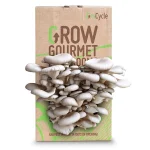
Let’s be honest. The journey to a zero-waste kitchen can feel… overwhelming. You open your fridge and see plastic wrap. Your pantry is a shrine to single-use packaging. It’s easy to think you need to throw everything out and start from scratch.
But here’s the deal: that’s the opposite of a sustainable mindset. A true zero-waste transition isn’t about perfection; it’s about progress. It’s about making smarter, more conscious swaps over time. It’s about finding joy in reusing and reducing.
This guide isn’t a rigid list of demands. Think of it as your friendly roadmap. We’ll walk through the absolute essentials—the tools and swaps that make the biggest impact without making you crazy. Ready to build a kitchen that’s not only kind to the planet but also a genuine joy to cook in? Let’s dive in.
The Heavy Hitters: The Big-Ticket Items That Change Everything
These are the foundational pieces. The ones you’ll use every single day. Investing in quality here means you won’t be replacing things every year, which is a huge win for reducing waste.
Glass Jars & Containers (The Pantry Heroes)
Honestly, where would the zero-waste movement be without the humble glass jar? They are endlessly versatile, non-porous (so they don’t absorb smells), and, well, they just make your bulk beans and grains look beautiful.
How to use them:
- Bulk Buying: Bring them to stores that sell pasta, nuts, spices, and flour in bulk. Just get the jar weighed first (that’s the “tare” weight).
- Food Storage: Leftovers, pre-chopped veggies, soups, sauces—you name it. They go seamlessly from fridge to freezer to table.
- DIY Projects: Fermenting pickles, making kombucha, or storing homemade nut milk. They’re the workhorses of DIY.
Reusable Produce & Grocery Bags
This is arguably the easiest first step. Those flimsy plastic bags at the grocery store are used for an average of 12 minutes before being discarded. It’s a staggering statistic. A set of reusable mesh bags for produce and sturdier totes for the rest of your haul eliminates this waste instantly.
Pro tip: Stash a few bags in your car or clip a lightweight one to your everyday purse. You know, for those impromptu grocery runs. Because they happen.
High-Quality Food Wraps
Beeswax wraps or silicone bowl covers are the brilliant answer to plastic cling wrap. They’re flexible, washable, and reusable for over a year (or more, with good care). They use the warmth of your hands to mold over bowls, plates, or half-cut fruits and vegetables, creating a perfect seal.
The Everyday Swaps: Small Changes, Massive Impact
This is where the magic happens on a daily basis. These swaps become second nature, quietly eliminating a constant stream of trash from your kitchen bin.
Compost Bin for Countertop
Food scraps don’t belong in the landfill. In fact, when they break down without oxygen there, they release methane, a potent greenhouse gas. Composting is the natural antidote. A small, stylish countertop bin with a carbon filter (to neutralize odors) makes collecting your coffee grounds, eggshells, and veggie peels effortless.
Reusable Coffee Filters & Tea Strainers
If you’re a daily coffee or tea drinker, those paper filters and tea bags add up to a shocking amount of waste each year. A simple, permanent mesh filter for your drip machine or a sleek stainless steel tea infuser for your cup is a one-and-done solution. The taste is often better, too—no papery residue.
Unpaper Towels & Swedish Dishcloths
This swap tackles one of the biggest sources of kitchen waste. “Unpaper” towels are essentially reusable rolls of absorbent cloth towels that fit on a standard paper towel holder. Swedish dishcloths are another genius invention—highly absorbent cellulose sponges that can be washed and reused dozens of times. They’re a powerhouse for spills and cleaning.
Beyond Storage: The Tools for a Truly Sustainable Kitchen
A zero-waste kitchen isn’t just about what you store food in. It’s about the tools you use to prepare it, clean it, and even get it into your home.
Solid Cleaners & Refill Stations
Those plastic bottles of dish soap, hand soap, and cleaner? They’re mostly water. Solid dish soap bars (that lather up incredibly well) and concentrates you can dilute in your own bottles are game-changers. More and more stores now offer refill stations for everything from laundry detergent to olive oil—just bring your jar.
Compostable Cleaning Brushes
Swap out that plastic scrub brush with a wooden one featuring natural fiber bristles. Once it’s worn out, you can snap off the head and compost it or simply replace the head, keeping the handle. It’s a small touch that feels deeply satisfying.
A Good Water Filter & Reusable Bottles
Buying bottled water is perhaps the most visible symbol of single-use culture. Installing a simple water filter on your tap or using a filter pitcher ensures you have great-tasting water on demand. Pair it with a few stylish glass or stainless-steel water bottles for hydration on the go.
Making It Work For You: A Realistic Approach
Okay, so that’s the list. But staring at it can still be daunting. The key is to not try and do it all at once. That’s a fast track to burnout.
Start with what bothers you the most. Is it the pile of plastic bags under your sink? Tackle the reusable grocery bags first. Does your trash can fill up too quickly with food scraps? Maybe the countertop compost bin is your priority.
Embrace the “use what you have” principle. Don’t throw out perfectly good plastic containers. Use them until they break, then replace them with a more sustainable option. The most zero-waste item is the one you already own.
And finally, give yourself grace. You will forget your bags sometimes. You’ll accept a plastic straw. It happens. The goal isn’t a spotless record; it’s a conscious effort, a gradual shift in mindset. Every single swap, no matter how small, is a vote for a healthier planet. And that’s something to feel really good about.










